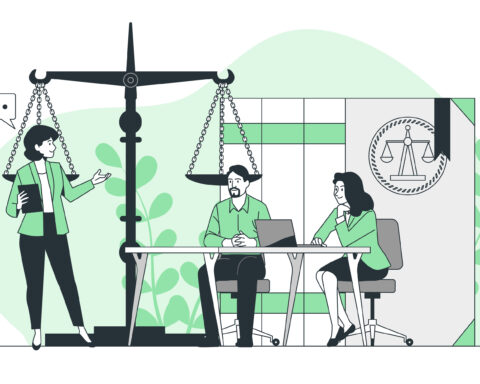Attorney Bas A.S. van Leeuwen stands out in the legal arena with a meticulous investigative approach across various legal domains. His expertise spans criminal charges, administrative disputes, contract breaches, family conflicts, and juvenile matters. Known for in-depth legal research, he builds robust cases through strategic defense construction. Van Leeuwen’s analytical precision, adaptability to diverse legal areas, and empathetic handling of family and juvenile cases define his comprehensive and justice-driven methodology.
Investigation: Unraveling the Complexities
In the intricate web of global business, where accusations of financial mismanagement, fraud, bribery, money laundering, corruption, or violations of international sanctions can cast a dark shadow on any organization, Attorney Bas A.S. van Leeuwen emerges as a beacon of legal expertise. Specializing in guiding clients through the treacherous terrain of criminal matters, administrative supervision, enforcement cases, and internal and external investigations, he has become a trusted figure in the legal realm.
When faced with allegations, Attorney van Leeuwen seamlessly transitions into the role of an investigator, demonstrating a unique blend of legal acumen and investigative prowess. His approach is marked by meticulous attention to detail, ensuring that every facet of the case is thoroughly examined to ascertain the veracity of claims. These investigations are not merely routine fact-finding missions but strategic maneuvers aimed at uncovering the truth while safeguarding the client’s interests.
Attorney van Leeuwen employs a multifaceted strategy in conducting internal investigations. First and foremost, he meticulously reviews financial records, scrutinizing every transaction to identify irregularities that may indicate financial mismanagement or potential fraud. This exhaustive process involves collaboration with forensic accountants and financial experts who bring a specialized lens to the investigation.
Simultaneously, Attorney van Leeuwen delves into the organizational structure and operational procedures of the client. He conducts interviews with key personnel, seeking insights into the day-to-day workings of the company and potential vulnerabilities that may be exploited. This not only aids in understanding the context of the allegations but also helps in identifying any systemic issues that may need rectification.
Moreover, Attorney van Leeuwen is adept at navigating the complexities of international business transactions. In cases involving bribery, money laundering, or violations of international sanctions, he collaborates with experts in international law to ensure a comprehensive understanding of the legal landscape. This global perspective allows him to build a robust defense strategy that considers the nuances of different jurisdictions.
In the course of his investigations, Attorney van Leeuwen prioritizes discretion and confidentiality. Recognizing the sensitive nature of these matters, he establishes stringent protocols to safeguard information and maintain the privacy of his clients. This commitment to confidentiality is crucial in preserving the reputation of the organization amidst the turbulent waters of allegations and investigations.
Attorney van Leeuwen’s investigative approach extends beyond the confines of internal investigations. In cases where external factors, such as regulatory bodies or law enforcement agencies, are involved, he adeptly manages interactions to protect the client’s legal standing. This involves strategic communication, negotiation, and, if necessary, litigation to safeguard the client’s interests and reputation.
Through his unwavering commitment to uncovering the truth and navigating the complexities of legal intricacies, Attorney Bas A.S. van Leeuwen stands as a formidable figure in the realm of investigations. His comprehensive and detailed approach ensures that his clients receive not only legal guidance but a strategic ally in the face of challenges that threaten the very core of their operations and reputation.
Key Features
In the intricate realm of legal investigations, Attorney Bas A.S. van Leeuwen stands as a seasoned guide, adept at navigating the complexities of criminal matters, administrative supervision, enforcement cases, and internal and external investigations. His role extends far beyond mere legal representation, delving into the heart of investigative processes with a multifaceted approach. Here are key aspects that illuminate the significance of Attorney van Leeuwen’s role:
-
Meticulous Fact-Finding: Attorney van Leeuwen approaches investigations with meticulous attention to detail. His keen eye for scrutinizing financial documentation and transactional intricacies ensures a comprehensive understanding of the case, aiming not just for surface-level findings but a deep comprehension of the underlying dynamics.
-
Strategic Investigative Maneuvers: Going beyond conventional fact-finding, van Leeuwen employs strategic maneuvers. Each investigation becomes a carefully orchestrated plan, strategically designed to uncover the truth while safeguarding the best interests of the client. This involves collaboration with internal teams and external experts, ensuring no stone is left unturned.
-
Financial Acumen: With a profound understanding of financial intricacies, Attorney van Leeuwen delves into the fiscal aspects of investigations. His expertise includes reviewing financial records, analyzing transactions, and identifying potential irregularities or discrepancies that may point to financial mismanagement or fraudulent activities.
-
Collaboration and External Expertise: Recognizing the multifaceted nature of complex cases, van Leeuwen seamlessly collaborates with internal teams and engages external experts. This collaborative approach ensures a holistic perspective, incorporating insights from various disciplines such as forensic accounting, international law, and regulatory compliance.
-
Organizational Structure Analysis: Attorney van Leeuwen goes beyond the financial realm, delving into the organizational structure and operational procedures of his clients. Interviews with key personnel provide insights into daily operations, potential weaknesses, and systemic issues that may contribute to the allegations. This holistic understanding aids in crafting comprehensive defense strategies.
-
Navigating International Transactions: In cases involving international business transactions, Attorney van Leeuwen exhibits a deft hand in navigating the complexities. Whether dealing with allegations of bribery, money laundering, or violations of international sanctions, he collaborates with international law experts to ensure a nuanced understanding of the global legal landscape.
-
Discretion and Confidentiality: Recognizing the sensitivity of legal investigations, Attorney van Leeuwen places a high premium on discretion and confidentiality. Rigorous protocols are established to protect information and preserve client privacy, acknowledging the delicate nature of the issues at hand.
-
Legal Position Protection: In situations involving external factors such as regulatory bodies or law enforcement agencies, Attorney van Leeuwen adeptly manages interactions to protect the client’s legal position. This includes strategic communication, negotiations, and, if necessary, legal actions to secure the client’s interests and reputation.
-
Holistic Approach to Truth-Seeking: Attorney van Leeuwen’s commitment to uncovering the truth goes beyond the boundaries of internal investigations. His comprehensive approach involves understanding the broader context, identifying systemic issues, and addressing challenges posed by different legal jurisdictions.
-
Global Legal Landscape Mastery: With a keen understanding of the global legal landscape, van Leeuwen collaborates with international law experts, ensuring a nuanced approach to legal challenges that transcend borders. This global perspective enables him to build robust defense strategies, considering the subtleties of different jurisdictions.
Social key points
In the intricate realm of legal proceedings, Attorney Bas A.S. van Leeuwen emerges as a stalwart practitioner dedicated to the art of investigation. His journey in the phase of investigation is marked by a commitment to unraveling the complexities inherent in a myriad of legal matters. Whether the stakes involve criminal charges, administrative disputes, contract breaches, family conflicts, or delicate juvenile matters, Attorney van Leeuwen’s approach is characterized by a meticulous and thorough investigative process.
Attorney Bas A.S. van Leeuwen distinguishes himself in the intricate landscape of legal proceedings through key features that define his approach to investigation and building strong legal cases across various domains. Here are some key features of his methodology:
-
Comprehensive Legal Research: Attorney van Leeuwen is characterized by his commitment to in-depth legal research. Whether dealing with criminal charges, administrative disputes, contract breaches, family conflicts, or juvenile matters, he undertakes a thorough examination of legal principles, precedents, and doctrines relevant to each case.
-
Meticulous Investigative Approach: Van Leeuwen employs a meticulous investigative approach in every case. Recognizing that a solid case is built on detailed information, he delves into the complexities of each situation, leaving no stone unturned to ensure that all pertinent details are considered.
-
Analytical Precision: A hallmark of his methodology is analytical precision. Van Leeuwen navigates the intricacies of the law with sharp legal acumen, not only understanding the charges or disputes at hand but also identifying potential defense strategies or grounds for contestation.
-
Expertise Across Legal Domains: Whether it’s criminal law, administrative law, contract law, family law, or juvenile law, Attorney van Leeuwen demonstrates expertise across a range of legal domains. His ability to adapt his investigative approach to different legal contexts contributes to the effectiveness of his representation.
-
Strategic Defense Building: In criminal cases, van Leeuwen strategically builds a defense by examining evidence, witness testimonies, and procedural complexities. In contractual disputes, he takes on the role of a legal detective, scrutinizing contractual obligations, terms, and potential breaches.
-
Empathetic Approach in Family Conflicts: Acknowledging the emotionally charged nature of family conflicts, van Leeuwen brings an empathetic yet resolute approach to his investigations. He navigates the complexities of family relationships, legal precedents, and the interests of all involved parties.
-
Sensitivity in Juvenile Matters: Matters involving minors require a unique sensitivity, and van Leeuwen demonstrates an understanding of both legal nuances and developmental aspects. In these cases, he ensures that justice is administered with a balanced perspective, considering the well-being of the young individuals involved.
-
Adaptability and Agility: Van Leeuwen’s methodology is marked by adaptability and agility. He tailors his investigative approach to the specific demands of each case, recognizing that legal strategies must be flexible to address the unique aspects of different legal scenarios.
-
Dedication to Excellence: Throughout his investigative journey, Attorney van Leeuwen remains steadfast in his commitment to excellence. His dedication to thorough research and analysis reflects not just a professional duty but also a confidence in the integrity of the legal system.
-
Advocacy for Justice: Ultimately, Attorney Bas A.S. van Leeuwen emerges as an advocate for justice, a practitioner whose meticulous approach lays the foundation for the triumph of truth in the sacred halls of the legal world.



